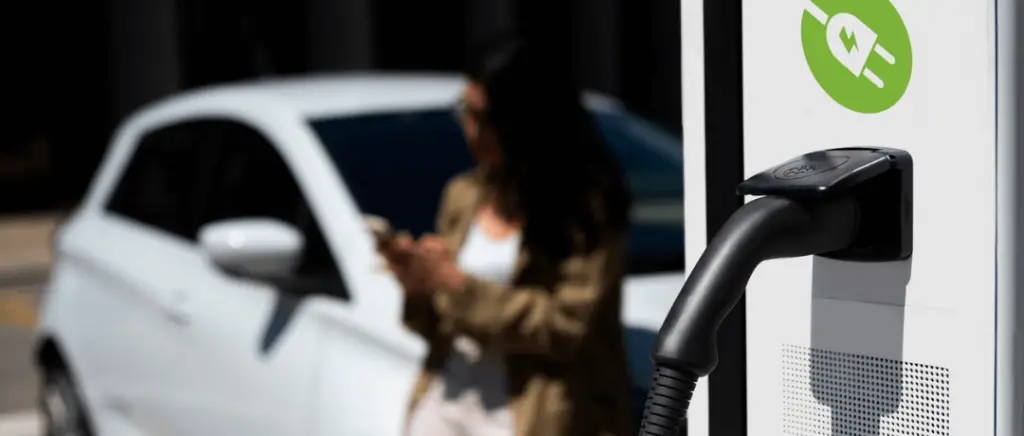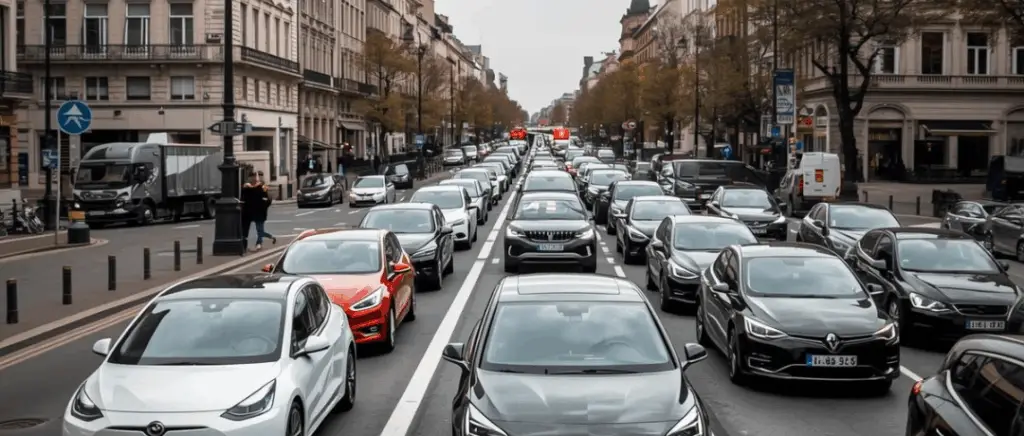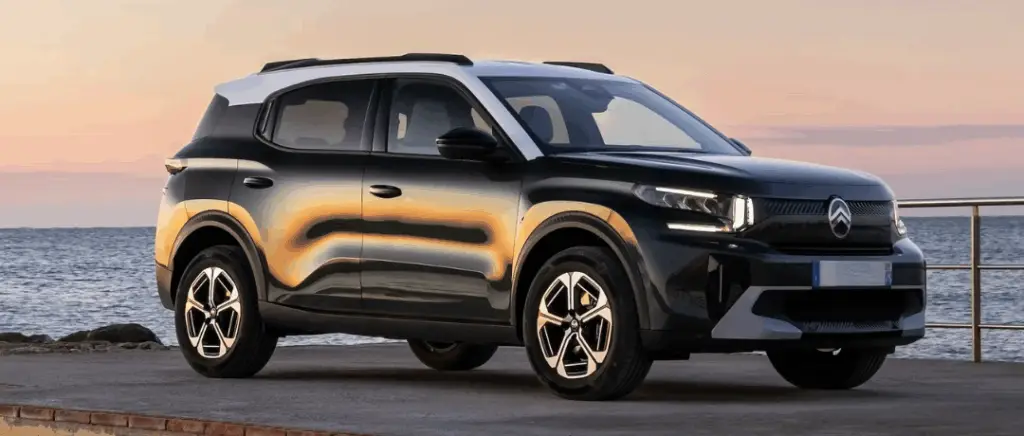Monday to Friday
9am - 12.30pm - 2pm - 7pm
Electric charging points: a pillar of sustainable tourism
Sustainable tourism and electric mobility
Sustainable tourism, which aims to minimise the negative impact on the environment while promoting local economic development, has found a major ally in electric mobility. The rise of electric mobility represents a revolution in the way we think about travel, particularly in the tourism sector, where the use of electricity is a key factor.carbon footprint is a growing concern.
Integrating electric mobility into sustainable tourism
The deployment of electric vehicles, such as the Tesla Model 3the Volkswagen ID.4 or the Renault Zoé e-Techoffers travellers low-emission travel options, significantly reducing the environmental impact associated with tourism. This transition to cleaner modes of transport is perfectly in line with the objective of sustainable tourism, which seeks to reconcile exploration with respect for nature.
What electric mobility initiatives are there in the tourism sector?
- Many tourist destinations now offer electric vehicle hire services, enabling visitors to discover sites of interest while adhering to the principles of sustainable tourism.
- Charging station networks: the expansion of electric charging station networks, such as the European initiative to install one million charging points by 2025, is making long-distance travel easier and encouraging tourists to opt for this greener alternative.
- Some tourism operators are including electric vehicles in their tour packages, highlighting itineraries designed to minimise carbon footprints and enhance the local natural and cultural heritage.
These initiatives show how electric mobility can contribute to the development of more responsible and sustainable tourism. By reducing dependence on fossil fuels and cutting CO2 emissions, the tourism sector can move towards a future in which travel is synonymous with conservation.
Also read → Sustainable mobility, issues and solutions
Electrical infrastructure: a challenge and an opportunity
Infrastructure for recharging electric vehicles represents both a major challenge and a considerable opportunity for sustainable tourism. France's ambitious objective of developing a recharging infrastructure The government's determination to support the ecological transition in the transport sector, including tourism, is demonstrated by the fact that this service is comprehensive and accessible throughout the country.
What are the challenges ahead?
Setting up an effective electric charging infrastructure for electric vehicles involves a number of challenges. It is important to ensure that charging points are evenly distributed throughout the country, including rural and tourist areas, to guarantee accessibility for all users.
Adapting the power of charging stations is fundamental to offering users fast charging solutions, which are essential for long journeys, typically during tourist periods. Lastly, ensuring that charging points are compatible with different models of electric vehicle is essential to enable as many tourists as possible to benefit from this infrastructure. To achieve this, the legislative and regulatory framework plays a key role, with the electric charging infrastructure deployment plan providing financial incentives to encourage the installation of charging points open to the public.
What opportunities are there?
The expansion of the electric recharging infrastructure is opening up new prospects for sustainable tourism, thanks in particular to :
- attracting a new clientele: tourists using electric vehicles are likely to favour destinations equipped with charging stations, generating new economic opportunities for the regions.
- Promoting eco-tourism: the installation of electric charging points at tourist sites is part of an approach that promotes sustainable tourism and environmental protection, a marketing argument that is increasingly sought after by travellers.
- Enhancing the brand image of destinations: by adopting an advanced recharging infrastructure, tourist destinations can reinforce their brand image as being at the cutting edge of innovation and sustainability.
Île-de-France and Auvergne-Rhône-Alpes, with 5,184 and 4,882 charging stations respectively, are examples of well-equipped regions that support environmentally-friendly travel and attract visitors who are concerned about their carbon footprint.
In addition, measures such as the Decree no. 2022-1330 of 17 October 2022 on the use of renewable energy in transport.
Also read → What challenges will electric car charging infrastructures face in 2024?
Economic impact on the tourism sector
Tourism attraction and innovation
The presence of electric charging points is becoming a major asset for tourist regions such as the Chamonix valley and Cap d'Agde Méditerranée, promoting sustainable mobility and attracting a new profile of visitors.
The Chamonix valley: an example of successful integration
The Chamonix valley, known for its breathtaking scenery and mountain activities, has added new electric recharging stations, making the destination even more attractive to eco-responsible tourists. These initiatives demonstrate the region's commitment to sustainable tourism and electric mobility, contributing to its appeal as a tourist destination.
Cap d'Agde Méditerranée: combining holidays and ecomobility
Similarly, the Cap d'Agde Méditerranée area offers a variety of recharging options for electromobile visitors, underlining the importance of easy access to recharging points in holidaymaker satisfaction. Accommodation equipped with recharging points is particularly sought-after, demonstrating that recharging infrastructure has become a criterion of choice for travellers.
Innovation and additional income for accommodation providers
The integration of charging points not only benefits tourists, but also the establishments that welcome them. The installation of recharging points in gîtes, hotels, restaurants, etc. is a good example of this. restaurantsthe hotels and campsites benefit from increased visibility on platforms dedicated to electric vehicle drivers, such as ChargeMap or EVHotels.
This visibility can lead to an increase in bookings. What's more, charging for the use of the kiosks could represent a source of additional revenue for these establishments.
Also read → How do I charge my electric car at a public charging point?
Sustainable development of tourism and economic spin-offs
Sustainable tourism development represents a balanced approach between economic, environmental and social needs, ensuring the long-term viability of the sector. This strategy not only preserves resources for future generations, but also generates substantial economic benefits for local communities, regions and countries as a whole.
What are the positive economic impacts?
Sustainable tourism is a fast-growing sector that makes a significant contribution to the global economy. By adopting sustainable practices, tourist destinations can not only reduce their ecological footprint, but also improve their attractiveness, resulting in increased visitor numbers and, consequently, economic benefits for the region. These practices include efficient management of natural resources, protection of the environment, and offering authentic experiences that respect local cultures.
From recent studies by the World Tourism Organisation (UNWTO) and the United Nations Environment Programme (UNEP) have highlighted the growing importance of sustainable tourism and its potential to stimulate economic growth. For example, implementing sustainable tourism practices can make a significant contribution to the local economy, not only by creating jobs, but also by supporting local businesses. In addition, the development of sustainable tourism infrastructure, such as eco-friendly accommodation and green transport, attracts a growing segment of environmentally conscious tourists, thereby boosting the local economy.
However, the effective implementation of sustainable tourism poses certain challenges, particularly in terms of initial funding for ecological infrastructures and raising awareness of the importance of such practices. Nevertheless, the long-term benefits, both economic and environmental, far outweigh these initial obstacles. In addition, government policies and private initiatives play a crucial role in promoting sustainable tourism, by providing financial incentives and raising awareness of its benefits.
Sustainable tourism is not just a trend, but a necessity if the tourism sector and its economic benefits are to continue. It offers a unique opportunity to reconcile economic growth and environmental preservation for tourist destinations around the world.
Also read → How do you organise an eco-friendly trip?
Challenges and prospects for electric mobility and sustainable development in tourism
Integrating artificial intelligence for automation
The integration of artificial intelligence in the electric mobility sector allows processes to be automated, routes to be refined and the use of charging stations to be maximised. AI helps to identify the optimal periods for charging and discharging electric vehicles (EVs) in vehicle-to-grid (V2G) applications, improving battery management and road safety through advanced driver assistance systems.
Initiatives to support the transition to electric mobility
In France, a number of noteworthy initiatives are supporting the transition to electric mobility, thereby contributing to sustainable development in tourism and beyond. These include the EV100 France projectThe aim of the project is to accelerate the adoption of zero-emission electric vehicles by mobilising businesses around actions addressed to the French government. The project includes the organisation of workshops and forums to share knowledge and experience and consolidate a consensual approach to the challenges of electromobility for businesses. These meetings will also provide an opportunity to draw up messages and concrete requests to be passed on to the public authorities to stimulate political ambition and the automotive market in favour of electromobility.
V2X solutions
V2X solutions enable electric cars to transfer their surplus energy to grids, buildings, homes and other energy-consuming destinations. This concept improves the performance, stability and reliability of the electricity grid, especially during peaks in energy demand. V2X technology also includes applications such as vehicle-to-home (V2H) and vehicle-to-building (V2B), which supply residential and commercial structures with electricity.
Charging stations
Optimising charging times and managing the use of electric fleets are key to reducing costs and environmental impact. Modern platforms offer solutions for monitoring battery health and optimising energy use, turning electric vehicles into storage devices for a sustainable electricity grid.
Conclusion
The installation of electric charging points in tourist areas therefore represents a significant turning point in promoting sustainable tourism and attracting a new eco-responsible clientele. By increasing accessibility for electric vehicles, these infrastructures encourage less polluting travel practices, contributing to a positive image of destinations and stimulating the local economy. They are therefore a strategic investment in the sustainable development of tourism, in line with current environmental requirements.
If you would like to find out more about the tax credit for in-car charging points 2024For more information, see our article on this subject.
































